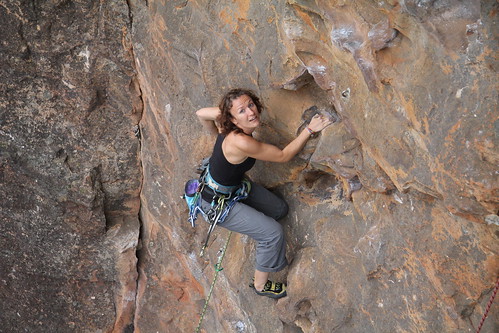 I want to do more. I am not doing enough. I need to train harder. I need to train longer.
I want to do more. I am not doing enough. I need to train harder. I need to train longer.
These are all common themes when developing a training plan with an athlete. It doesn't matter what sport is involved, the questions and concerns always revolve around these issues or a variant on one of these themes.
But what is the real underlying intent or motivation? Is it as obvious as it sounds?
Not always.
It is important to get down to the underlying motivation, context, and behaviors that drive the discussion in order to optimize the athlete's training - both physically and mentally.
Underlying every behavior is a positive intention relative to the athlete's self image. We don't tend to make poor decisions - they just seem poor relative to someone else's context. Sometimes these behaviors will be very self-constructive, and others will be very self-destructive. But either way, they satisfy the intent given the athlete's self image.
It can be a struggle to balance life and training. How do we maintain successful relationships, careers, families, friendships and still have the time to train? How do we optimize our training, both physically and mentally? And perhaps most importantly, how do we appease the issues that lie within us? Or do we?
When looking at the underlying motivators, we must ask ourselves: why do I train?
Fitness: “I like being active”, “I like how I feel when I am outdoors”, “It’s good for my health”. This is the most basic reason for training. But with that said, more training does not necessarily equate to greater results.
Achievement: “I like challenging myself”. Training and racing can be a great way to challenge our comfort zones. We all have an internal reference point: “I am not as fast, not as strong, etc” as someone else. This can be both constructive or destructive, depending on the self image of the athlete.
Stress relief: “I exercise because I am under a lot of stress at work/home/etc”. Given the information in #1, then there may need to be associated mechanisms to address – which may have nothing to do with the actual sport training.
Self-image: “I like how I feel about myself”. Though we may feel better about ourselves due to the fitness and achievement, or how we look, training does not define us as individuals. We may enter into training with a “fear of failure” or a “fear of success” – both can exhibit potentially self-destructive behaviors that may be reflected in both training and life.
Life avoidance: “I do this to get out of the house”. Training can serve as a means of distraction. Acknowledging the issues being avoided will go a long way to allowing training to have a healthy place in your life
Of course, once we have answered the question of "why do I train?", we must then acknowledge the answers - and the solutions consistent with those answers. That can be a difficult proposition unto its own, especially once the athlete is face-to-face with their own reality.
If the coach and athlete understand what drives the athlete, then a training approach can be optimized for the athlete. It can address not only the appropriate physical training strategies, but the mental training strategies as well.
An upcoming post will present some mental training strategies to effectively "train the brain".
Why do you train? What are the your underlying motivators?
Photo credits: magnezja
 "Running Injuries: Etiology And Recovery- Based Treatment" (co-author Bridget Clark, PT) appears in the third edition and fourth editions of "Clinical Orthopaedic Rehabilitation: A Team Approach" by Charles Giangarra, MD and Robert C. Manske, PT.
"Running Injuries: Etiology And Recovery- Based Treatment" (co-author Bridget Clark, PT) appears in the third edition and fourth editions of "Clinical Orthopaedic Rehabilitation: A Team Approach" by Charles Giangarra, MD and Robert C. Manske, PT.
 Allan Besselink, PT, DPT, Ph.D., Dip.MDT has a unique voice in the world of sports, education, and health care. Read more about Allan here.
Allan Besselink, PT, DPT, Ph.D., Dip.MDT has a unique voice in the world of sports, education, and health care. Read more about Allan here.
 Top 5 finalist in three categories: "Best Overall Blog", "Best PT Blog" and "Best Advocacy Blog".
Top 5 finalist in three categories: "Best Overall Blog", "Best PT Blog" and "Best Advocacy Blog".